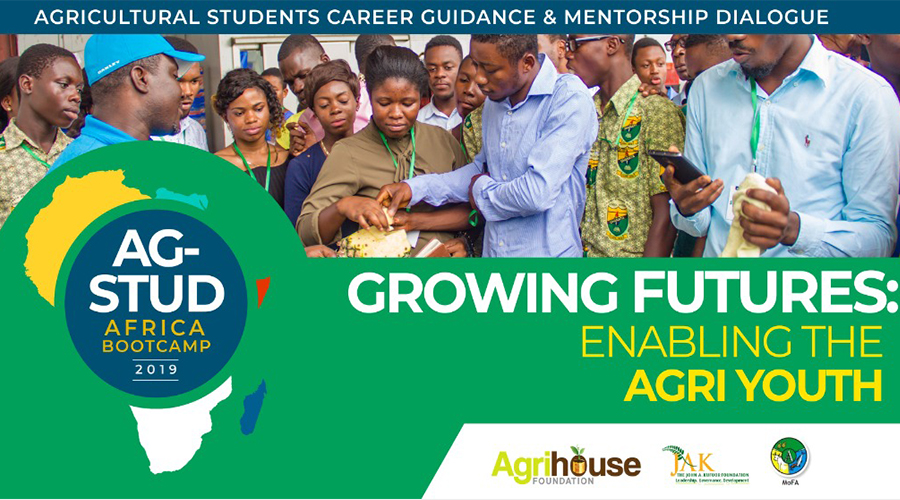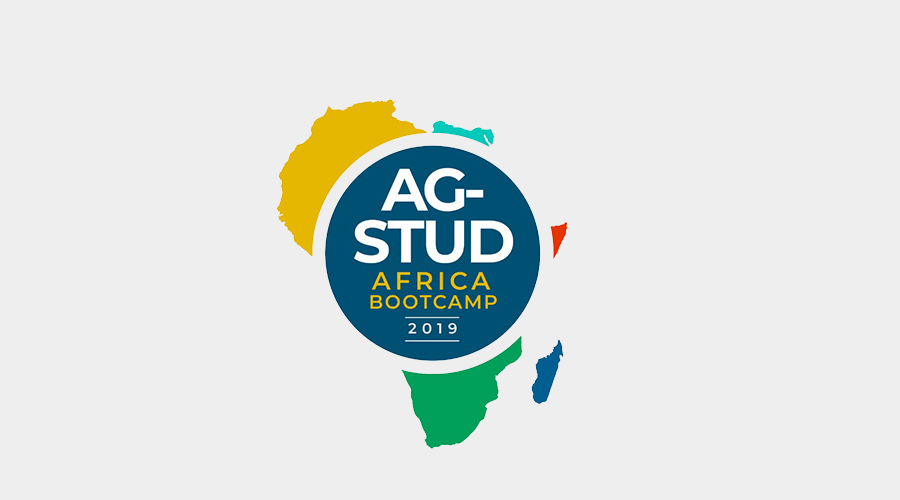
BREAKING THE ‘GRASS CEILING’: EMPOWERING WOMEN FARMERS
The importance of women to agriculture is well documented. In Ghana, there is a stockpile of academic and media articles consistently pointing to the need for more practical support for them.
In a recent submission, Dr Heather Cameron, the Canadian High Commissioner to Ghana, added her voice to calls for improved support for women when she said women contribute 60 per cent to the growth of agriculture in Ghana and, therefore, deserved equal opportunities as men in the sector.
She said men were given many opportunities in the agriculture to the disadvantage of women, despite their enormous contribution towards socio-economic development.
Speaking at a recent conference organised by the Canadian High Commission, in collaboration with Agence Francaise de Development on the theme: “Gender Equality through Agriculture in Ghana”, She spoke effusively about her country’s commitment to partnering Ghana to promote employment and increase productivity to enhance economic growth.
Dr Cameron said Canada was willing to help Ghana to modernise its agriculture and strengthen the value chain of food security. “Our development firms are helping Ghana to export food crops including cocoa to Canada,” she said.
The rather gloomy narrative of women engaged in agriculture is sadly one that reverberates across the continent of Africa. This is reflected in a riveting study by the World Bank group dubbed “Breaking the ‘Grass Ceiling’: Empowering Women Farmers”
According to the 2018 study, Women must be at the centre of any effort to promote sustainable agriculture, reduce hunger and improve rural livelihoods. This is because despite the fact that Women make up almost half of the agricultural labour force in developing countries, their production is limited by barriers to finance, inputs, extension services and land rights.
The introductory part of the study read “Agricultural skills, knowledge and encouragement should be taught to daughters from a young age to help change antiquated social structures and cultural norms.
New technologies and training are critical for women farmers to be able to build resilience in the face of climate change. Around the world, 815 million people suffer from hunger. That number could be significantly reduced if women farmers had the same rights and resources as their male counterparts, and were empowered to contribute fully to the food system.
Women are central to agriculture and make a strong contribution to food security and nutrition at both the household and community levels. In many developing countries, they make up almost half of the agricultural labour force, but their production is limited by barriers to finance, inputs, and extension services, as well as land ownership and rights.”
On the level of commitment from stakeholders on the continent, the report called on all to support women to ensure that women are further equipped to make incredible gains.
“As the world works towards the 2030 Sustainable Development Agenda, which pledges to “leave no one behind,” how can we ensure that women farmers – often one of the most marginalized groups – are truly prioritized and not left behind? To mark International Women’s Day, we asked female farmers, researchers and entrepreneurs from around the world for their ideas on how best to empower women and close the gender gap in agriculture.”
Overcoming Social and Cultural Barriers
“For so long, women have been neglected when it comes to all forms of support: functional literacy, financial, knowledge and technology,” says Professor Ruth Oniang’o, founder and leader of the Rural Outreach Programme, editor-in-chief of the Africa Journal of Food, Nutrition and Development, and one of the winners of the 2017 Africa Food Prize. “We should move away from rhetoric and truly involve women in all facets of development.”
Katrina Sasse, an Australian cereal farmer and 2017 Nuffield Australia Scholar adds that “structural and cultural issues within agriculture must change for the gender gap to close.”
For generations, antiquated norms have dictated the social structure of rural communities. Women farmers are often relegated to unpaid farm work and household tasks while men receive training, resources and land. Sasse explains that “the tradition of passing a farm down to a son means males continue to have greater influence and power within agriculture.” But social structures can be changed. “To break this pattern of family farm succession,” says Sasse, “parents need to be doing more to encourage their daughters to take over the farm. It is not enough to just say, ‘you can farm if you want to.’ It is really important that skills and knowledge be transferred and taught to daughters from a young age. When it becomes normal for a young woman to say: ‘I will take over the family farm one day,’ that is when we can start to celebrate the closing of the gender gap in agriculture.”
Preparing for the Future through Training and Technology
Access to modern, labour-saving technologies is also critical for women in agriculture. Esther Ngumbi, a post-doctoral researcher at Auburn University and founder of Oyeska Greens, an agricultural start-up in Kenya, notes that “game-changing technologies are already available” and need to be provided to women farmers – especially now, as they face the threat of climate change.
“The rapidly changing climate is making it very hard for women to make agriculture work,” says Ngumbi. “The rains are not raining when they are supposed to. The temperatures are extremely high. However, newer agricultural innovations are also being rolled out every day. We can help women farmers by making sure they have access to these game-changing innovations so that they can farm and make agriculture work.” And with new tools and technologies comes a need for training and education. Ngumbi advocates for extension services and affordable, government-sponsored programs to train women in agriculture. “Agricultural extension has to be ramped up to ensure that women farmers know what these technologies are and that they know how to use them,” she says. “We have to take it to the grassroots levels and meet women farmers where they are.”
Entrepreneur Mercy Melody Kayodi agrees. “The information age we are in is precisely what we need. The majority of women farmers are willing to go commercial, but need to be informed on how best they can achieve and earn more from farming.” As Director of Education and Programs at Broadfield Enterprises Uganda, Kayodi establishes training sessions for in permaculture, and believes that “more funding in technology, innovation, and education” is critical for helping women farmers.
Training and education can provide a lasting foundation for better farms and livelihoods, according to Professor Oniang’o. “Smallholder women farmers do not need hand-outs, and they do not want favours,” Oniang’o says. “They need long-term relevant training. With the right support, women can rid Africa of hunger, malnutrition and poverty.”
Financing Women in Agriculture
A successful, third-generation poultry farmer in Jamaica, Shelly-Ann Dinnall has overcome multiple obstacles in her career. After Hurricane Sandy destroyed part of her farm in 2012, she was able to recover and ultimately expand her farm, thanks to good relationships with her bankers. But many women farmers are not as lucky.
Shelly-Ann Dinnall says that when it comes to finance, “women farmers are at a disadvantage because they often don’t have the resources to satisfy the stringent banking requirements.” Without better access to suitable financial services, including credit, savings and insurance, women in agriculture will continue to lag behind. Microfinance institutions and other financial service providers with a presence in rural areas can play a key role in closing the gender gap by allocating resources specifically to women farmers and targeting gender-based barriers.
“Women are the backbone of most developing countries and it is beneficial to a country’s economy to empower women in agriculture,” says Dinnall. “Financial institutions are very important to this movement. They can create special programs that will encourage existing female farmers and target potential female farmers to invest in the agriculture sector.”
And these female farmers are the future. They are at the frontlines of climate change and they are advocates for nutrition. They are connecting and communicating through mobile phones, social networks and community groups. In certain areas of the world, they are taking over farms completely, as young men migrate to urban areas.
In her work as a Nuffield Scholar, Sasse has had the opportunity to meet and interview countless women farmers. “Many of the women I met were so motivated and passionate about farming and the agricultural industry that they found themselves wearing an array of hats – the farmer, the industry leader and community champion,” she says. “Some had off-farm careers as well as managing their own farm and at some stage, balancing all of this plus raising children. The agricultural sector needs to be ready for women to achieve all of those things simultaneously.”
The Ghana effort
In Ghana, the role of women cannot be underestimated as they constitute more than half the agricultural labour force. This obvious significance of women to the sector has seen the government and other stakeholders work assiduously to advance the cause of women.
The creation of Women in Agriculture (WIAD) directorate at the Ministry of Food and Agriculture (MOFAD) has created a practical outlet for government to channel resources that will specifically meet the needs of women.
Similarly, collaboration between local NGOs and development partners have recently emerged as a frontier in renewed efforts to speedily advance the cause of women in agriculture.
At Agrihouse Foundation, our initiatives such as the Women in Food and Agricultural Leadership Forum and Expo (WOFAGRIC), Gold in the Soil Awards, Agric Students Career Guidance and Mentorship Dialogue Bootcamp (AG-STUD AFRICA), the Annual Pre-harvest Agribusiness Exhibitions and Conference, among others, is in no uncertain terms, contributing its quota in making a huge social impact, developing and shaping their agribusiness mindset to becoming leaders in their business space, efficiently managing their production and processing cycles and supporting them to build diverse market access and links.
While the budding progress of the Planting for Food and Jobs initiative is proof of the vital role women play in agriculture, it also crucial that we collectively work hard to ensure that the plight of women in agriculture is improved to reflect a positive narrative.
Source Credit: A significant part of this piece was obtained from a recent World Bank Group publication dated March 6, 2018.


